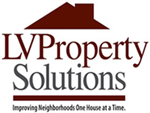More HOAs Foreclose on Late-Paying Owners
Be careful of this happening to you! If you are behind on your HOA payments you should understand what can happen as a result!
Condo homeowner associations are increasingly going after owners who have fallen behind on paying their HOA fees by triggering foreclosures against late owners. But some mortgage experts worry the move could have a ripple effect on other owners too in the form of higher interest rates and fees on their mortgage.
Read more: Many HOAs Are Underfunded and Financing Barriers Stifle Condo Resurgence
A legal process gaining traction among states called “super lien” gives HOAs the right to begin a foreclosure proceeding against property owners when the owners are seriously delinquent on their HOA fees. The process is allowed in more than two dozen states and is being considered by nearly a dozen more, MarketWatch reports.
Traditionally, mortgage lenders have the priority to get their money back through foreclosure auctions, but super liens give first rights to HOAs who can jump ahead of the lenders. Recent court decisions in Washington, D.C., and Nevada have recently supported super liens too.
“HOAs are getting more savvy,” Jason Tufaro, vice president with Matt Martin Real Estate Management in Frisco, Texas, a company that works with both banks and HOAs, told MarketWatch. “They know the first thing an owner who’s in financial trouble will do is stop paying their HOA fees. The last thing they’ll not pay is the mortgage.”
Joey Lubinski, a partner in the law firm Ballard Spahr’s Denver office, says that lenders weren’t moving as quickly as HOAs would have liked when it came to foreclosing on defaulting home owners. “If the lender isn’t moving forward to take the title themselves, then the HOA felt it had to step in,” Lubinksi says.
But the court decisions giving HOAs these rights to foreclose on owners and trump the lender in recouping costs are raising concerns with mortgage agencies. The Federal Housing Finance Agency, which oversees Fannie Mae and Freddie Mac, says this could hurt taxpayers and lending.
“The mortgages supported by Fannie Mae and Freddie Mac must remain in first-lien position, meaning that they have first priority in receiving the proceeds from selling a house in foreclosure,” the agency wrote in a statement in late December.
Some mortgage lenders worry that they’ll be left with no returns after a case of nonpayment of HOA fees.
“Just as home mortgages are underwritten based on your credit rating, it’s not far-fetched to say that … this paperwork and increased risk is going to get factored into the cost of the loan,” says Roger Winston, a real estate attorney and partner in the Ballard Spahr LLP law firm in Bethesda, Md.
Source: “Condo-Fee Foreclosures Become Headache for Home Owners,” MarketWatch (Jan. 9, 2015)
